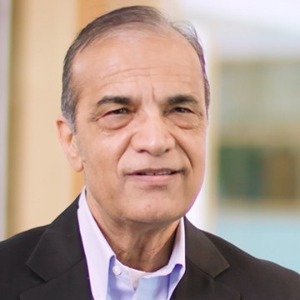Title : A DNA-based Vaccine Technology Independent of a Virus or Device
Abstract:
This presentation describes the development of PLACCINE a novel DNA vaccine platform well-suited to overcome the limitations of the current vaccines. The PLACCINE platform leverages the inherent DNA advantages including design flexibility incorporating multi-antigen payload, durable antigen expression, strong cellular responses, stability at working temperatures (> 4C), and a rapid, scalable, and economical manufacturing process. A PLACCINE-based vaccine is independent of virus or device for delivery and is based on a plasmid DNA vector containing single or multiple antigens of a pathogen, a synthetic DNA delivery system, and an adjuvant. Proof of concept of monovalent and bivalent SARS-CoV-2 PALCCINE vaccines following prime and boost have been demonstrated in multiple animal models including rodents and non-human primates with the evidence of humoral and cellular responses and protection against viral challenge characterized by >95% clearance. The quality of immune response in mice or protection in non-human primates was comparable to a commercial mRNA vaccine with durable response maintain for at least up to 8 months. Analysis of cellular response showed increases in CD4 and CD8 cells in PLACCINE-vaccinated animals at higher cellular density than a commercial mRNA vaccine. Comparison of a single dose PLACCINE vaccine with an mRNA vaccine against a SARS-CoV-2 strain showed longer lasting antibody titers with the PLACCINE vaccine. The application of PLACCINE platform has also been demonstrated against other pathogens including monkey pox or flu virus. Vaccine stability studies at workable temperature (> 4C) shows PLACCINE vaccine is stably active for at least up to 9 months. These studies show potential for a DNA-based approach top vaccine that is independent of a virus or device.
Audience Take Away:
- Explain how the audience will be able to use what they learn?
An increased interest in DNA-based vaccines is expected. - How will this help the audience in their job?
- Is this research that other faculty could use to expand their research or teaching?
Yes, of course. We are open to collaboration with research institutions or industry to better understand PLACCINE technology and expand its application. - Does this provide a practical solution to a problem that could simplify or make a designer’s job more efficient? Demonstrating the use of synthetic delivery systems for development of DNA vaccine may promote better and mor unique vaccine designs.
- Will it improve the accuracy of a design, or provide new information to assist in a design problem?
- List all other benefits.



